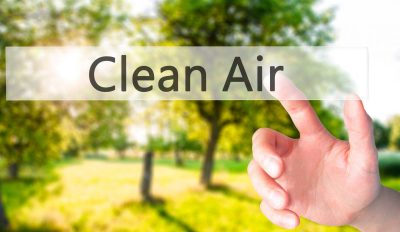Facility Reopening Advice for a Post-Covid World
April 29, 2020
Rochester, N.Y.—As states begin to reduce the restrictions on businesses brought about by COVID-19, many companies are working to make their facilities safer places for employees and customers to return to. R.P. Fedder Industrial, LLC, a premier filter solution supplier for some of the world’s largest companies, has been working with customers to proactively maintain or upgrade HVAC systems in anticipation of reopening.
“Of course, we’ve been having conversations with customers around maintenance that should be done on existing HVAC systems and filters as they start them up again after this shutdown,” explains Chris Fox, President. “However, we’ve also been working with several facilities managers to improve overall air quality by upgrading to systems that better block particles such as those that carry COVID-19, or units that use Ultraviolet Germicidal Irradiation (UVGI) to sterilize viruses and bacteria and prevent them from being recirculated in and contaminating the air.”
Among the advice the company has shared with customers:
- Change filters that have been sitting in shutdown equipment to ensure you’re starting out with the cleanest possible air.
- You may also want to consider additional precautionary measures such as using HEPA / ULPA filters in certain HVAC equipment (effective on a broader array of contaminants).
- Make sure HEPA / ULPA filters have a tight-fit and proper seal since air leaks around the edges will make them ineffective; additionally, air handling unit fans must have the power to overcome the pressure drop caused by the filter.
- Prepare for the longer lead times COVID-19 has caused the supply chain. Put together the list of filters you’ll need, for which facilities, and in what quantities and place orders early to ensure you’ll have them when you open.
- Viruses and other germs can be controlled more effectively when HEPA filtration is combined with Ultraviolet Germicidal Irradiation (UVGI).
R.P. Fedder has recently sold more than 60 units of the V-PAC™ SC Self-Contained Air Purification System to customers in the health care industry in New York. This portable unit features HEPA filtration plus UV. This combination is recommended by the American Society of Heating, Refrigerating and Air-Conditioning Engineers (ASHRAE), and destroys viruses, bacteria and volatile organic compounds (VOCs).
According to the nonprofit International Ultraviolet Association (IUVA), UV is a known disinfectant for air, water and surfaces that can help to mitigate the risk of acquiring an infection in contact with the COVID-19 virus when applied correctly. “The IUVA has assembled leading experts from around the world to develop guidance on the effective use of UV technology, as a disinfection measure, to help reduce the transmission of COVID-19 virus,” says Dr. Ron Hofmann, professor at the University of Toronto, and president of the IUVA.
R.P. Fedder has also culled advice from industry experts to help customers prepare to reopen with confidence. Some of these follow.
The Environmental Protection Agency recommendations for routine HVAC systems maintenance advise companies:
- Ensure HVAC systems are operating properly, with outdoor ventilation air maintained at or above design minimum values. Determine whether HVAC systems comply with the ASHRAE Standard 62.1 ventilation requirements at the system level and in the breathing zones of all occupied spaces.
- Employ filtration and gas-phase air cleaning strategies to further improve IAQ, in conjunction with source control strategies and maintaining minimum ventilation rates. Change filters regularly and ensure condensate pans are draining.
The Occupational Safety and Health Administration (OSHA) advises workplaces to eliminate the COVID-19 hazard, or protect workers from it through engineering controls, administrative controls such as safe work practices, and personal protective equipment. The agency notes, engineering controls “reduce exposure to hazards without relying on worker behavior and can be the most cost-effective solution to implement.” Among the controls OSHA recommends for COVID-10 are:
- Installing high-efficiency air filters
- Increasing ventilation rates in the work environment
- Installing physical barriers, such as clear plastic sneeze guards
- Installing a drive-through window for customer service
- Specialized negative pressure ventilation in some settings, such as for aerosol generating procedures (e.g., airborne infection isolation rooms in healthcare settings and specialized autopsy suites in mortuary settings)
Of note, the Centers for Disease Control and Prevention, in their Guidelines for Business, also recommend companies consider increasing ventilation rates and/or increasing the percentage of outdoor air that circulates into the building ventilation system.
In creating recommendations specifically for health care facilities dealing with COVID-19, American Society of Healthcare Engineers has identified a Minimum Efficiency Reporting Value (MERV) 16 filter rating as the most effective in capturing the virus that causes COVID-19.
As many maintenance staff will bear the bulk of the burden of keeping facilities clean, disinfected and as safe as possible, businesses are paying particular attention to keeping these employees safe in their job. ASHE has noted that the removal and exchange of filters is not likely an aspect of work that will cause significant risk of virus exposure. “Due to the air flow through the filter, the SARS-CoV-2 virus will quickly desiccate and die. Additionally, the virus should adhere pretty well to the filter unless the filter is beaten or dropped. If this is a concern, then the use of a fixate, such as hairspray, on the filters could be considered,” the agency notes, adding filters can be disposed of by bagging and placing them in normal trash.
R.P. Fedder designs and manufactures custom filters for thousands of engineered products used in industrial and medical applications. The company also warehouses and distributes a wide range of standardized air filters, liquid filters, and commercial filtration equipment.
